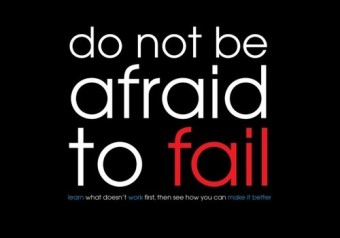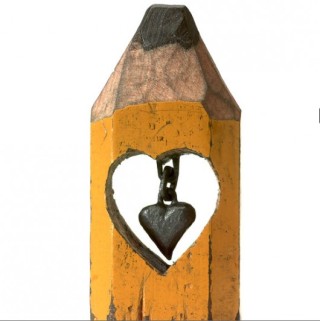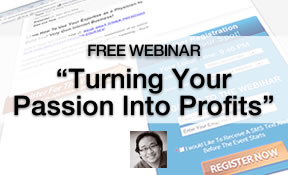 The most challenging one to manage is you.
The most challenging one to manage is you.
Self-leadership isn’t a concept most physicians think about very often. Yet leadership capability relates as much to how we lead ourselves as how we lead others. Some of the greatest barriers we face along the path to "making things happen" lie within us.
Most physician leaders can trace their greatest obstacles to something personal—a fear, insecurity, or self-imposed limitation. As we consider past conflicts that really drained our energy—such as a partnership that didn’t work out or a team that fizzled under our watch—we must challenge ourselves to acknowledge our role in the failure. Our flawed judgment is often the root cause.
As you lead others—in clinical practice or in a non-clinical role—you may very well be your greatest liability. Self-leadership is about awareness, tolerance, and not letting your own natural tendencies limit your potential.
Find a Path to Self-Awareness
The forces of organization, community, and leadership capability often evade us because our tendencies—to generate more ideas, to isolate ourselves, and so on—get in the way. Our best hope for staying on track is to notice when we drift off course and to figure out why—to be self-aware. Self-awareness is a critical skill in leadership, but it is deeply personal. It is not about our actions but about the emotions that trigger our actions.
With increased self-awareness, we become better students of ourselves. When we make mistakes, we are able to identify what we could have done better more readily. When we receive feedback from others, it becomes more actionable as we come to understand its correlation with our emotions. The path to self-awareness never ends, but we must cross it nonetheless.
Learn From Your Mistakes and Failures
Most of us have a hard time with failure because we feel not only the professional loss but also the personal hurt when our ideas fail to gain traction. But this tendency poses a problem for us as we commit ourselves to act without conviction. Projects that encounter or end with failure have great value—but only if we can recognize it and reap the benefits.
When we experience failures, we must remain open to the lessons that can be learned. Grasping the realizations that come with failure is a crucial part of the learning process.
When something goes wrong, there are three questions we should seek to answer: What external conditions may explain the failure, what internal factors may have compromised our judgment, and are there any “gems” in the unintended outcome?
Avoid the Trap of the Visionary’s Ego
During my time in the medical device and pharmaceutical industries, I had the opportunity to participate in a lot of meetings in the executive suite during both the expansion and bursting of the bubble that followed it. I always found it interesting how every challenge was presented as an unusual one-off. The business leaders would nod their heads in affirmation. “This is an unusual time," someone else would say.
Despite history, the tendency to think that a given opportunity or challenge is a one-off still persists. Some call this tendency “visionary’s ego,” when a leader’s default thinking is that he or she is the exception to the rule. As physicians, we may be susceptible to bouts of this form of narcissism. While our tendency is to approach every situation with a fresh set of eyes, we should also accept a grounding realization: not much is entirely new—and yes, we can learn from the past.
Challenge yourself to have some perspective. Don’t get caught up in the novelty of what you are doing that you lose touch with what’s been done before. As you encounter negotiations in healthcare organizations, collaborations with partners, or unique decisions or investment opportunities in your business, ground yourself with the fact that the situation you face isn’t as isolated and unique as you might think. Previous knowledge is yours for the taking, often risk-free and time-tested. Today never feels like it will be history, but it will. And more than likely than not, you will look back and realize that you should have known.
Challenge Conventional Wisdom
As you harness the lessons from the past, you must also question them. Of course, nobody should disregard good advice and fall victim to visionary’s narcissism. But as physicians, we cannot become imprisoned by the status quo. We need to reconcile our tendency to seek the advice of experts with out desire to do things differently—and perhaps better. We should be wary that “best practices”—the tried and true ways of doing things—often become conventional wisdom—and conventional wisdom is often wrong.
Consider Yourself an Entrepreneur
Whether you work for a large corporation or on your own, when it comes to leading ideas, ultimately you are an entrepreneur. Entrepreneurs are not the ones with the best ideas, says Andrew Weinreich, a trailblazing entrepreneur, “They’re just the ones willing to jump off a cliff without the answers."
Some feel the hardest part of pursuing a new venture is pulling the trigger—being mentally into it or not. So, when you come across ideas worthy of your time and energy, it is important to know which assurances you need—and which you don’t—before you decide to take the plunge. You will never have all the answers, but you need to feel that the risk of giving it a go is less than the risk of not trying. You don’t need to see the finish line, but you do need enough momentum to stay afloat. What matters most is your ability to keep moving your idea or venture forward, day by day.
Be Willing to Change Your Mindset
Physician leaders who have done extraordinary things often talk about times when they made decisions that were unpopular—but necessary for their success. Perhaps it was leaving clinical practice to pursue their passion—or quitting a well-paying job to start a company. Maybe it was saying no to an opportunity that seemed golden to others. Because of their decisions, their paths were unconventional. But in the midst of discouragement from their families and friends, they persisted and gained confidence from being challenged.
Just remember that the uncharted path is the only road to something new. As pressures mount, you need to stay the course and consider the doubts of others as an indication of your progress.
Keep an Eye on the Clock
In hindsight, it’s easy to talk about assuming a different mindset and defying the status quo. But it is very difficult to take the leap. Many of us postpone our dream pursuits for a whole host of reasons. We’re waiting for the right time—but are not sure when that time will come. We may have good reasons for not doing something, but we pay a price for postponing action.
Consider keeping an eye on what you’ve done with your time. Think about the last time you sat through a dull meeting. Recall how you tuned out the conversation but became aware of the time you had lost. During that time, were you taking any risks to develop other opportunities or move a new venture forward? Were you marketing yourself for an opportunity to get closer to your true passion—or develop a new area of expertise? Were you expanding your network and connecting with the opportunities around you? Depending on your point of view, this could be either a painful reminder of wasted time and lost opportunity—or a motivational reminder to use every minute to pursue your dreams in the next chapter of your life.
 Just wanted to check in with you guys and let you know about a new CME trip we've developed over at ExpedMed for February 28 - March 3, 2013 .
Just wanted to check in with you guys and let you know about a new CME trip we've developed over at ExpedMed for February 28 - March 3, 2013 .




 3 Comments
3 Comments







